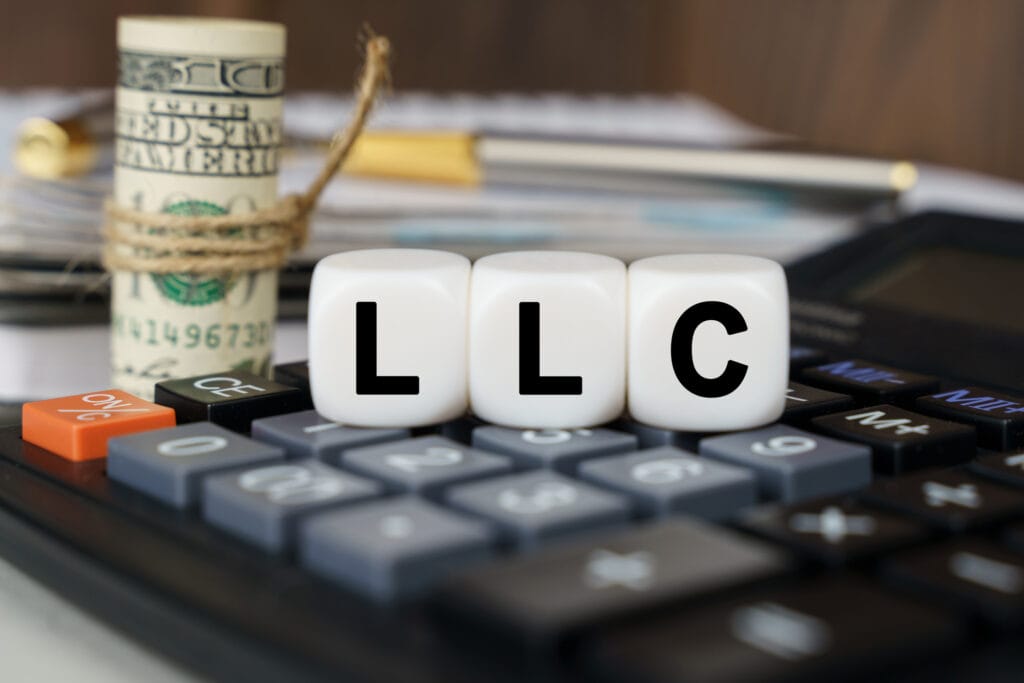We spend a great deal of our time attempting to reduce taxes for ourselves and our businesses. It’s important to do so, since taxes are generally our largest expense. In particular, if we are working with a single LLC, C or S-Corporation, instead of enjoying tax-free income, we can experience MAX PAIN when it comes to taxation. And even though our CPA set us up with this entity, that three-lettered-person may not have any idea of some of the incredible secrets which are available to those who own an interest in them. In fact, because they get to bill you more for having a corporate entity, you may be experiencing MORE tax and MORE accounting bills.
Let’s not do that.This article will explain one of the incredible opportunities to enjoy tax-free income. And it's available to shareholders, members and managers of S-Corps and LLCs.
An Introduction to Corporate Entities
“What is a “corporate entity” and why do I care?”
A “corporate entity” is basically a fancy word for a company. Companies in the United States enjoy what’s called “Limited Liability.” This means that if someone sues your company for its assets, your personal assets should never be included in the suit. Conversely, if someone sues you personally, the company’s assets are safe from that suit. Companies also have quite different tax treatments. Because they are the backbone of our economy, they enjoy some wonderful ways to “deduct” the tax on items which are specific to the requirements of the business. Moreover, there are some excellent ways to create legacy preservation which are not available in trusts, foundations or other asset classes.
There are several “entity” classes in America which are unique to the 50 States. Nearly all countries have a version of a proper corporation. In our case, that’s the “C-Corporation.” But we have two other classes which few other countries possess. In fact, they’re so unique that they’re not internationally recognized, and it’s unadvisable to move assets off-shore using them. However, the reason they are so unique lies in their incredible flexibility.
LLCs and S-Corps: A Breakdown

The two entity classes we’ll speak of today are the LLC and the S-Corporation. Both of these entities are prescribed liberally by CPAs for small business owners for various reasons. But rarely are they prescribed for tax-free income. “Tax-free” is an extremely rare adjective under the Internal Revenue Code (IRC). It is relegated to loopholes made by politicians (like the IRC §280(a) Augusta Rule) and certain Citizens living off-shore. In every other instance, “tax-free” comes with an advantage cost which I call the four “Cs”: some kind of Credit (which must be repaid), some kind of monetary Corral or lock-up, higher risk or loss of Control and a requirement for contributed Capital.
Opportunities like IRAs and 401(k) require the use of three - even all four of these “pounds of flesh” to get tax breaks. In their case, Capital is required, it’s definitely Corralled, and you definitely lose your Control over your money. Terrible tax advantages. What we’re looking for are opportunities which have few of these types of requirements - ideally one. Here, corporate entities allow us to use the latter alone for a tax break: Deployed capital.
About Deployed Capital
If we’re going to start up a business and use an entity to provide tax breaks and asset protection, we’re going to have to deploy capital of some kind into the company for its operation. Of course, the best way to deploy capital (in my humble opinion) is to use Other Institutions’ Money via a loan or a debt position. The next best way is to use Other People’s Money in an equity position or as a stakeholder in the company. However, neither of those options, although great from a cash-flow perspective, create the tax-free opportunities I’ll mention. To be fair, borrowed or invested capital is always tax-free to a company. But one way or another must be paid back (thus the “Credit” member of the “four Cs” mentioned earlier).
The third way is using your OWN capital to fund the company. And herein, lies the magic of LLCs and S-Corps.
A Few Important Definitions
To put money into a corporation we don’t just “give” money into its accounts, we “contribute” assets. And according to Black’s Law Dictionary, contribute means,
“To supply a share or proportional part of money or property towards the prosecution of a common enterprise or the discharge of a joint obligation.”
The perfect definition for what we’re doing. When we do a “Capital Contribution” into a company we are given a “basis” in the company. This means we are ascribed value in the company. The company doesn’t have to pay tax on the monies you contributed to the company. But you also can’t write it off as a deduction.
For Example:
If you contribute a $50,000 Toyota Tundra truck into the LLC, you now have a basis in the company of $50,000. Nice. In exchange, you’re given the ability to manage the assets of the company or at the very least hold shares in that company and enjoy its value and, ideally, profit distributions. But you no longer own the truck – and thus, it can’t be taken from you should you be sued personally. Double nice.
The Magic of Basis

The part which few speak about is the tax handling of your basis in the company. Most folks set up an S-Corp, put $10,000 into the business to run it and enjoy their FICA exemption for distributions and save 15.3% on their taxes…and call it good.
But you have $10,000 of basis in that S-Corp! And here’s why that’s amazing:
Basis that is returned via distributions is returned as TAX-FREE INCOME. This means that if you’re in an S-Corp with your husband, and the company makes $50,000 net (not considering the W-2 payments which are also required), and the distributions ascribed to you are $10,000, you receive that $10k tax-free. Of course, you no longer have a basis in your S-Corp. But it doesn’t change your rights or voting or control or future distributions either.
This is the same for any level of shareholder in an S-Corp and any level of Manager or Member in an LLC.
For Example:
If you place that $50,000 truck an LLC along with $10,000 of cash, you now have a $60,000 basis in the company. If the company does well and brings in $150,000 in cash, and the distributions to you are $80,000 for the year, the first $60,000 is a return of basis and tax-free to you!
Tax Voodoo
It gets even better once your basis is returned to you. For S-Corps and passive members of the LLC, additional distributions are taxed as capital gains. Now, of course, this isn’t tax-free any longer. For short term capital gains, we end up paying MAX PAIN tax again. No thanks.
BUT…if the company has held your assets for more than a year-and-a-day, those are no longer short-term capital gains. And although they are still taxed, long-term capital gains are taxed at 0% up to $41,675 (as of 2022). And this goes on year-on-year-on-year… Your first $41,675 every year in distributions given to you at 0% tax!

For Example:
As above you place a $50k truck and $10k into your S-Corp. For the first year, you receive $80,000 in distributions (again, not considering the W-2 requirements for this distribution). You pay NO TAX on the first $60,000. Then the next $20,000 is taxed as short-term capital gains which would be your ordinary income bracket (say 30%) $6,667 in tax.
THEN, the next year, having held those assets for over 366 days, you’re paid an additional $80,000 from distributions. Here, they’re all taxed as capital gains but now long-term. The first $41,675 is taxed at 0% and the remaining $38,325 at 15% for a total tax of $5,748.75. So for two years, the $160,000 you earned from distributions has a total tax of $12,415.75 or 7.76% tax. This is strictly Federal Tax of course. If you’re not in a non-tax State (of which there are only two for companies) you’ll pay this amount.
But seriously. Tax Voodoo… if it applies to you. To be fair, this additional benefit requires a second “C” for Members of an LLC which is “Control.” Only “passive” Members or “limited partners” can participate in this capital gains situation. And that requires greater risk and loss of “Control” as you trust the Managers know what they’re doing with your money.
This Rule Might Not Apply to You
Unfortunately, for active managers of an LLC, this capital gains rule does not apply to you. However, if you can prove that you’re passive in the company and are NOT a member, you can participate in this capital gain benefit just as your passive members are (limited partners). But even with the return of basis available, this is still a massive tax savings.
This completely revolutionizes tax planning for those who have structured themselves correctly and have multi-member/shareholder companies. Although this is also possible with single member entities, remember that the IRS classifies them as “disregarded entities.” Under scrutiny you may face more resistance for generally just being an “alter ego” of yourself for the purpose of avoiding taxes. I only suggest sole proprietors for payment to individuals as needed for living expenses as paid from the corporate structure – and there, only under contract (not distributions).
There are a ton of tax exemptions for corporations, but the return of basis to shareholders and members is one of the most poignant and most overlooked for small business owners.
Takeaway

Now that you've discovered the incredible tax-saving opportunities available to LLCs and S-Corps, imagine the financial freedom you could achieve as a successful entrepreneur. At Capitalism.com, we are on a mission to create one million millionaires by 2028, and we want you to be part of this exclusive group.
To help you reach your goals, we're offering a FREE playbook that will guide you through the process of growing your e-commerce business to the point of making 100 sales per day. This playbook is packed with proven strategies and insights that will take your business to the next level.
Don't miss out on this opportunity to learn from the best and join the ranks of successful entrepreneurs. Grab your FREE playbook today and start your journey towards financial independence.









